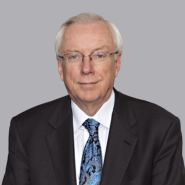CareDx Request for Rehearing/Rehearing En Banc Denied
- December 15, 2022
- Article
- Life Sciences News - December 2022 Newsletter
Associated People
On December 2nd the Federal Circuit denied CareDx Inc.’s request for rehearing of a panel’s decision affirming the decision of the Delaware District court that its test for transplant rejections was not patent eligible. CareDX was discussed in a July life Science Blog here. Briefly the patent was directed to detecting an organ donor’s cell-free DNA, cfDNA, as an indication of organ rejection an admittedly known relationship. This relationship was used immediately after a kidney transplant to determine if the dose of the anti-rejection drug is appropriate. If the transplant succeeded yearly invasive tests were necessary to check on whether the transplant was undergoing rejection. This procedure was expensive and not without risks. The patents, U.S.P.s 8,703,652 (‘652), 9,845,497 (‘497), and 10,329,607 (‘607) describe using a simple blood test to check on the transplant rather than the yearly invasive procedure and an invasive test if the blood test indicated a rejection may be occurring, a concept not found in the claims. The claims made a common error in seeking protection so broad it read on patent ineligible patent subject matter.
Retired Judge Michel filed an amicus brief requesting the Court to grant the petition. The amicus brief focused on the technology and not the claims including conventional procedures. This is a common mistake. Patent claim drafters seek to obtain the broadest possible claims forgetting this runs the risk in diagnostics of patent ineligibility. While this may be a good strategy to prevent designing around the claims it must be combined with narrower more tailored claims. Here no claims were limited to the invention as described in the specification, monitoring over time the status of the transplant noninvasively and performing an invasive procedure if the noninvasive technique suggested a rejection may occur. Such claims would have been patent eligible.
Recent Newsletter
5 IP Rules to Know to Protect Your Business in the United States (article in French)
Coaching INPI Newsletter










 Counseling & Strategic Advice
Counseling & Strategic Advice IP Transactions
IP Transactions Litigation
Litigation PTAB Proceedings
PTAB Proceedings Start-Up
Start-Up Technology Transfer
Technology Transfer Trademark & Designs
Trademark & Designs U.S. Patent Procurement (Application Drafting & Prosecution)
U.S. Patent Procurement (Application Drafting & Prosecution)








